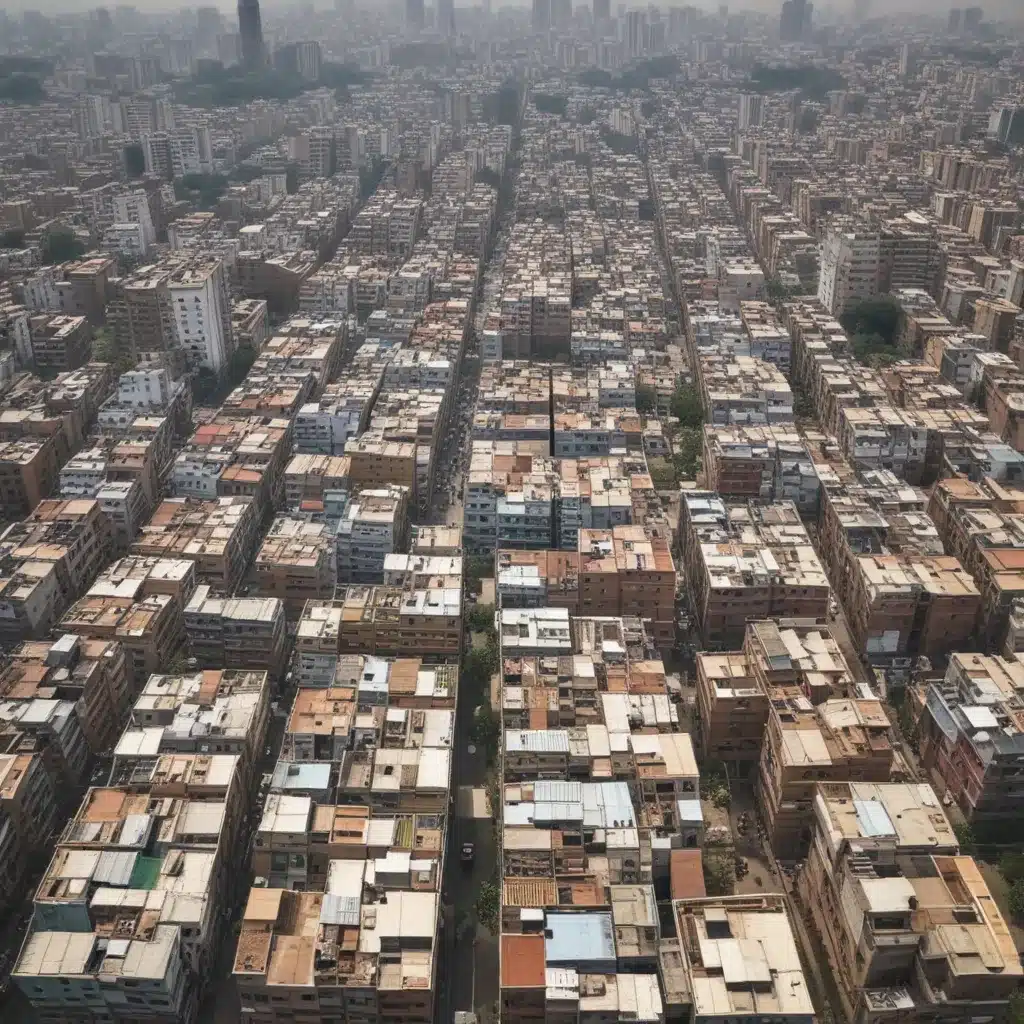
Embracing Energy-Efficient HVAC Systems for a Greener Future
As India embarks on its ambitious Viksit Bharat 2047 mission, the pivotal role of energy-efficient Heating, Ventilation, and Air Conditioning (HVAC) systems in propelling sustainable urban development has come into sharp focus. This comprehensive article explores the intersection of cutting-edge HVAC technology and the nation’s vision for environmentally conscious and resilient cities, offering insights that can inspire transformative change.
Sustainable Urbanization: The Critical Nexus
India’s urban landscape is rapidly evolving, with projections indicating that by 2047, nearly half of the country’s population will reside in cities. This unprecedented rate of urbanization presents both challenges and opportunities in the realm of sustainable development. Energy-efficient HVAC systems emerge as a crucial component in addressing the environmental impact of India’s urban growth.
Innovative HVAC Solutions: Powering the Viksit Bharat Vision
Technological advancements in HVAC systems have paved the way for a more energy-efficient and environmentally friendly approach to heating, cooling, and ventilation. From cutting-edge heat pump technologies to intelligent control systems, these innovative solutions can significantly reduce energy consumption and greenhouse gas emissions, aligning with the Viksit Bharat mission’s focus on environmental consciousness and resilience.
Embracing Advanced Heat Pump Technologies
Heat pump systems have emerged as a game-changer in the HVAC industry, offering exceptional energy efficiency and reduced carbon footprints. These advanced technologies leverage the principle of heat transfer to provide both heating and cooling, often outperforming traditional systems in terms of energy savings and environmental impact. By strategically integrating heat pump solutions into India’s urban development plans, cities can take a significant stride towards their sustainability goals.
Intelligent HVAC Control Systems
The integration of smart control systems and automation technologies has transformed the HVAC landscape, enabling precise monitoring, optimization, and real-time adjustments. These intelligent systems can adapt to changing environmental conditions, occupancy patterns, and user preferences, ensuring optimal energy efficiency and indoor comfort. Incorporating such cutting-edge control mechanisms into India’s building infrastructure can unlock unprecedented levels of energy savings and environmental stewardship.
Policy Interventions and Incentives
Recognizing the pivotal role of energy-efficient HVAC systems in sustainable urban development, policymakers in India have taken proactive steps to foster their adoption. Initiatives such as the Viksit Bharat 2047 mission and the National Mission for Enhanced Energy Efficiency have introduced targeted incentives, regulations, and support mechanisms to encourage the deployment of energy-efficient technologies, including advanced HVAC solutions.
Incentivizing Sustainable HVAC Adoption
The Indian government has introduced a range of financial incentives and tax rebates to promote the adoption of energy-efficient HVAC systems. These include subsidies for the installation of high-performance heat pumps, tax credits for buildings that incorporate advanced control systems, and low-interest loans for sustainable HVAC retrofits. By making these solutions more accessible and financially viable, India is empowering its urban centers to embrace a greener future.
Regulatory Frameworks for Energy Efficiency
Alongside financial incentives, India has also implemented robust regulatory frameworks to ensure the widespread adoption of energy-efficient HVAC systems. Stringent building codes, mandatory energy audits, and labeling programs have been introduced to drive the market towards more sustainable heating and cooling solutions. These policy interventions not only encourage innovation but also hold developers and building owners accountable for their environmental impact.
Collaborative Efforts and Global Partnerships
India’s pursuit of sustainable urban development through energy-efficient HVAC systems extends beyond national borders, with a growing emphasis on global collaboration and knowledge-sharing. Initiatives like the Coalition for High Ambition Multilevel Partnerships for Climate Action (CHAMP) and the Buildings Breakthrough have brought together international partners to share best practices, leverage technological advancements, and foster cross-border cooperation.
Leveraging Global Expertise and Resources
By engaging with international organizations, research institutions, and industry leaders, India can tap into a wealth of expertise and resources to accelerate the adoption of energy-efficient HVAC technologies. These collaborative efforts facilitate the transfer of knowledge, the piloting of innovative solutions, and the development of scalable strategies that can be replicated across the nation’s urban centers.
Empowering Local Leaders and Communities
Recognizing the critical role of local stakeholders in driving sustainable change, India has prioritized the engagement of city governments, community organizations, and grassroots initiatives. Programs like the Local Climate Action Summit (LCAS) and the Generation Restoration project empower subnational leaders to spearhead the implementation of energy-efficient HVAC solutions, fostering a bottom-up approach to urban sustainability.
Transforming India’s Urban Landscape
The integration of energy-efficient HVAC systems into India’s urban development landscape holds the promise of a greener, more resilient future. By embracing these cutting-edge technologies and aligning them with the Viksit Bharat 2047 vision, cities across the country can unlock a multitude of benefits, including:
-
Reduced Energy Consumption and Emissions: Advanced HVAC systems, such as heat pumps and intelligent control mechanisms, can significantly lower energy consumption and greenhouse gas emissions, contributing to India’s climate action commitments.
-
Enhanced Indoor Comfort and Health: Optimized HVAC solutions can improve indoor air quality, temperature regulation, and thermal comfort, enhancing the overall well-being of urban residents.
-
Cost Savings and Economic Benefits: The long-term energy savings and reduced operational costs associated with energy-efficient HVAC systems can translate into tangible financial benefits for building owners, developers, and city governments.
-
Resilient and Adaptive Urban Environments: By incorporating flexible and responsive HVAC technologies, India’s cities can better withstand the challenges posed by climate change, ensuring the continued provision of essential heating and cooling services.
-
Driving Innovation and Job Creation: The widespread adoption of energy-efficient HVAC systems will spur the growth of new industries, foster technological innovation, and create employment opportunities in the sustainable energy and construction sectors.
As India marches towards the Viksit Bharat 2047 vision, the strategic integration of energy-efficient HVAC solutions into the nation’s urban development plans stands as a pivotal pathway to a greener, more resilient, and environmentally conscious future. By leveraging the transformative potential of these cutting-edge technologies, India can position itself as a global leader in sustainable urban development, setting an inspiring example for cities around the world.


